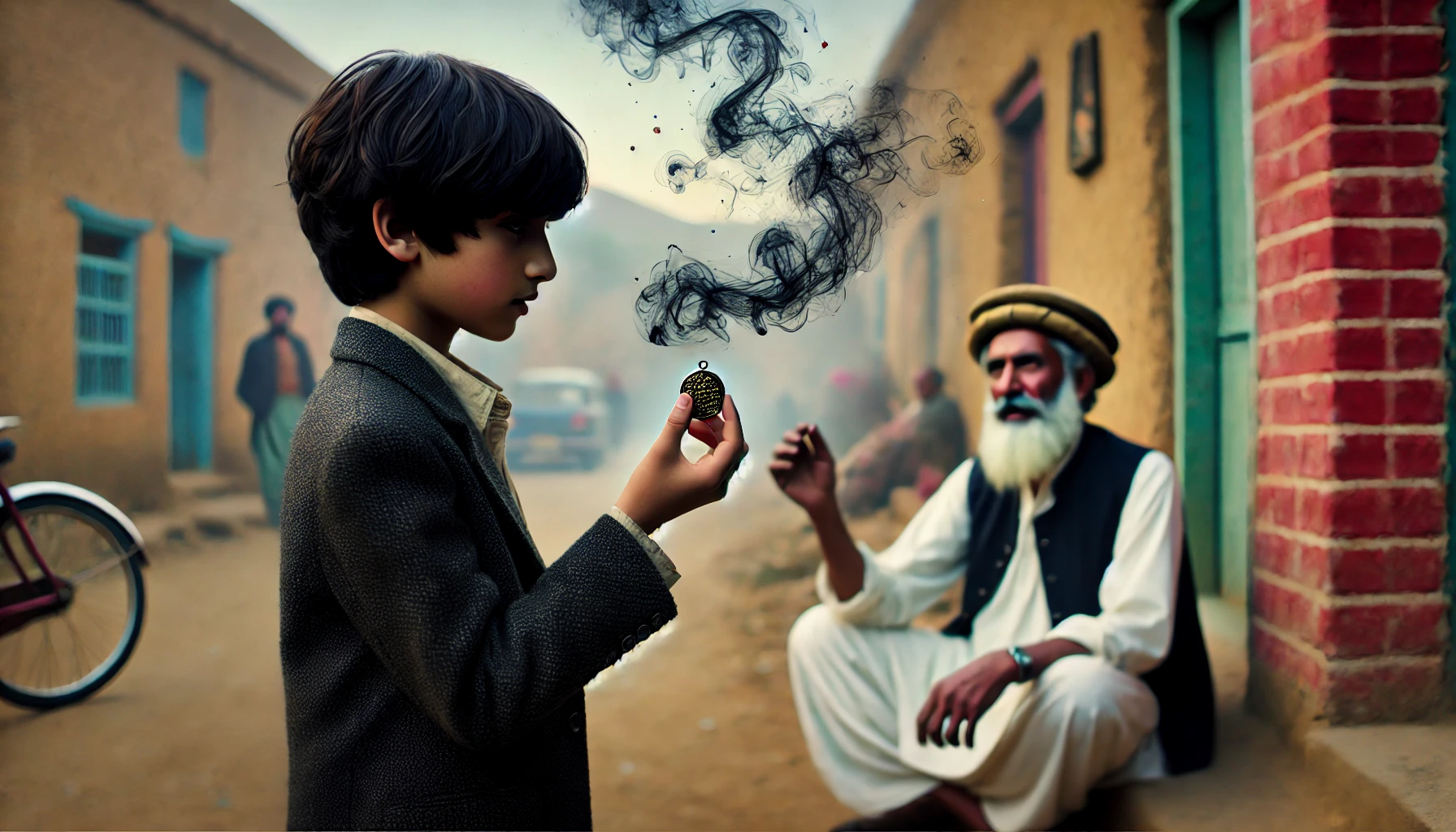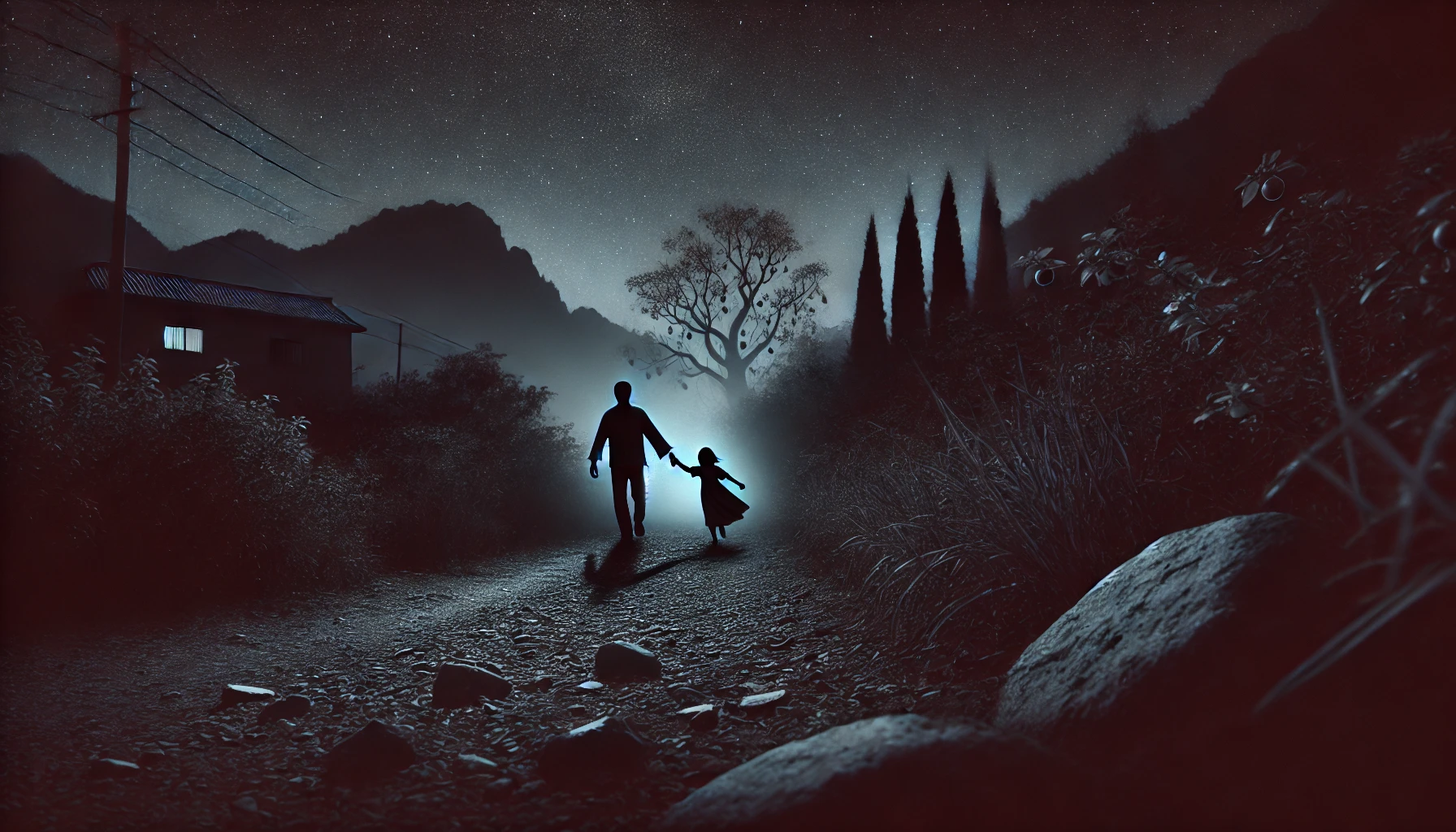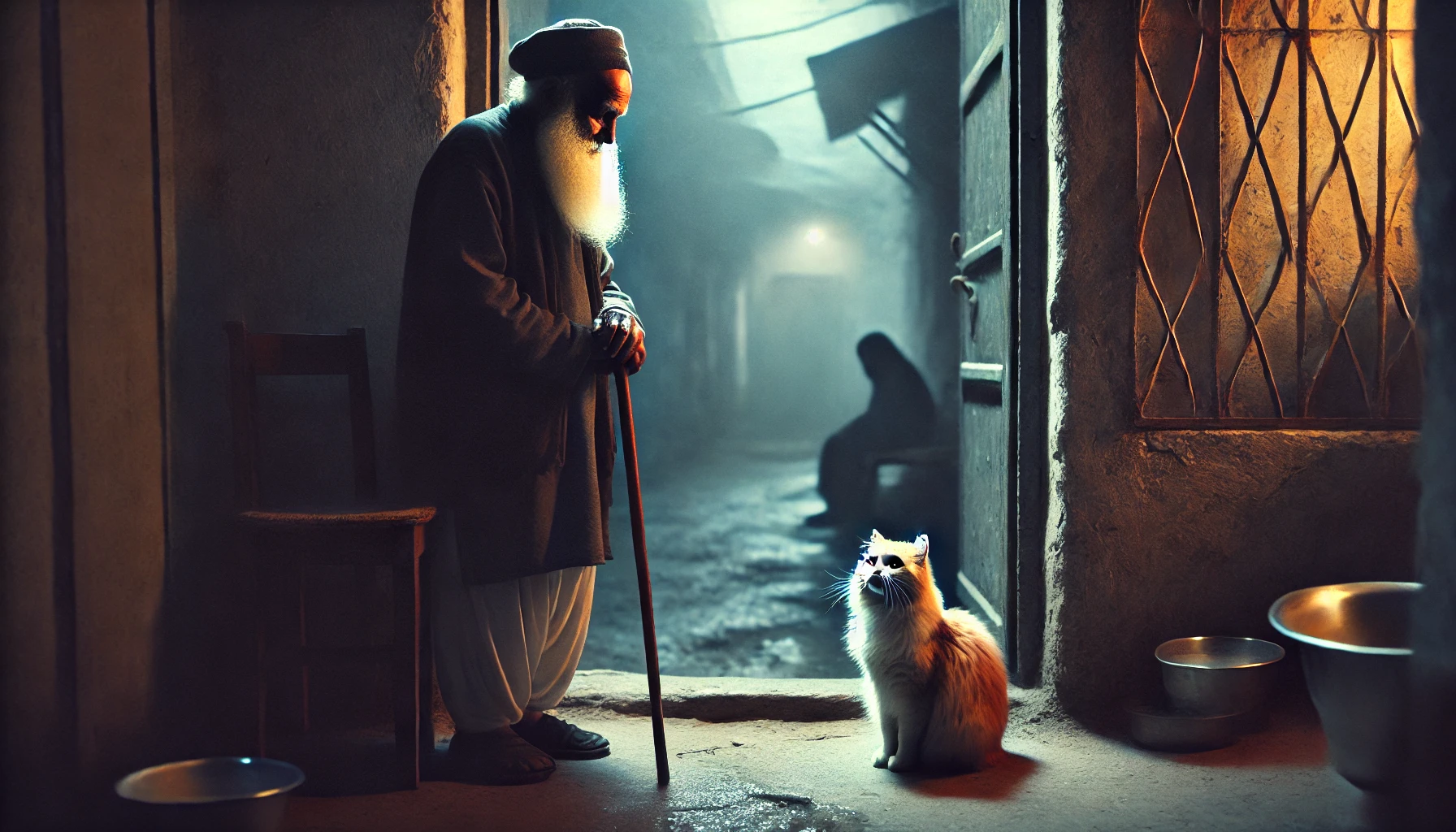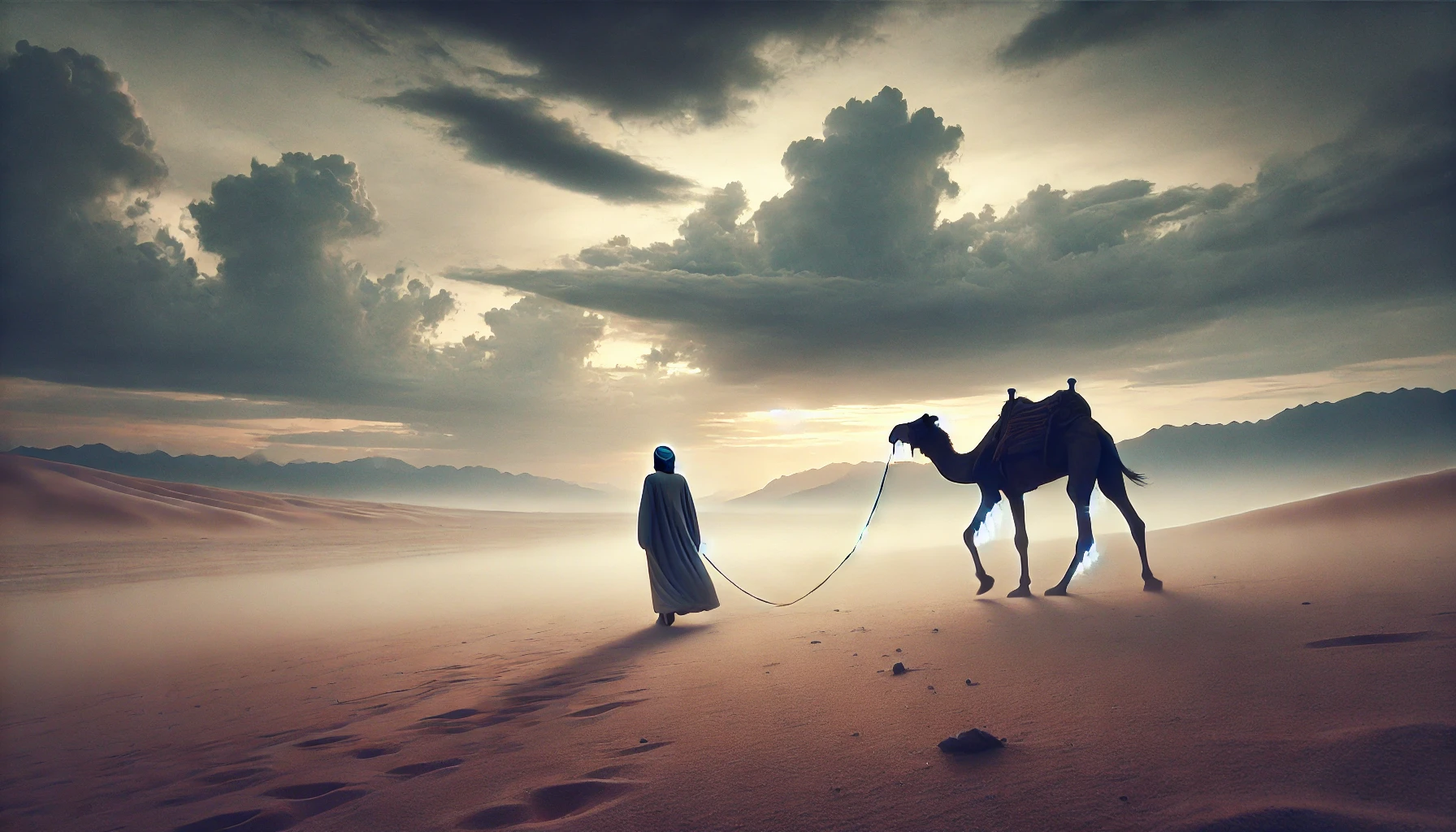
The Spoilt Brat and Mullah Weedhead’s Amulet
Written by Habib Kadkhodaei
Translation by Carina Jahani
From the moment I was born and first opened my eyes, I saw that all the people in my family were filled with joy. From all directions, everyone sung my praises with different melodies. As for Auntie, she was so happy she declared her willingness to die for me a hundred times an hour. The apple of her eye had come to this world. Mother said her hero had been born. Grandmother and Grandfather said that a tribal chief had been born, whereas my sisters said that a doctor or a pilot had been born.
The members of my family were constantly on tiptoe, and if, God forbid, I caught some slight fever or other illness, they all asked God for mercy in their own way. One would sacrifice a sheep, another a cow, and another still would make a pilgrimage to the Sheikhs’ village and pray for me. I was a spoilt and overprotected child that received nothing but love and affection. Already in the cradle, I was filled with joy and felt elevated above everyone and everything. I said to myself, “There is nobody else like me in the whole world. I am the only perfect one in the universe.”
I was the only boy in the family. Growing up, all I heard every day were words of praise and admiration. Everyone knows that an excess of admiration will lift a person above his fellow earthlings, and I was becoming more puffed up with every day that passed. I esteemed myself so highly in my own mind that again and again, I told myself that apart from me, there is not a single good-looking, smart, handsome young man in the whole world. I’m the only flower that smells sweet.
From the first day I started school, I never opened a single book, but still, I only got top grades. I thought, woooooow! I’m really on top of things! But the truth is, the reason I got good grades was that my sister’s husband was the headmaster of the school, and he had told the other teachers not to give his brother-in-law anything less than top grades. “He’s the only son in his family, and his sister loves him more than she loves me. If you give him a low grade, his sister will curse me day and night. Well, I can take being cursed, but she’ll also make me stand on one leg in the corner for a whole night, as if I were a schoolchild.”
As I grew up and became more and more arrogant, I came to believe that there was no one better and more knowledgeable than myself in the whole world. If God grants me a few more years, I will soon take charge of the country’s affairs and become a great leader. It was with these big plans that I began my university studies while still thinking I was the only flower that smelled sweet.
One day, as we were studying in the classroom, our teacher began to praise and commend himself. He told us all about his achievements. I was very troubled by what he said and I got all upset. This was the first time someone else had praised himself in front of me in this way. All of a sudden, I burst out: “What on earth are you saying, sir? Are you out of your mind? How dare you boast about yourself like this? If you and the other university lecturers were pounded in a mortar, all of you would not add up to a fourth of my weight. Get lost and play your tricks somewhere else.”
What I said actually upset the teacher quite a bit, and he told the other lecturers: “Deceive this crazy boy as best you can, and don’t give him any passing grades.” My four years at university had come to an end, but I had not yet finished my studies. I thought to myself that if I stay any longer, people will start ridiculing me. I secretly gave up my studies and told others that I had got my degree but did not feel like working at the moment and was going to take it easy for a while before looking for a job.
Every day, I put on a suit to boost my self-image, went out, and walked aimlessly up and down the streets of the village. Sometimes in the afternoon, I went down to the village madrasa where the youngsters of the village gathered, or sometimes I walked all the way from there to Miran’s garden.
But for some time, I had been struggling mentally, telling myself that sooner or later, people would realize that I had not completed my studies. After all, how long can this lie be concealed? So I needed some sort of pretext to leave the country, to be on the safe side and make sure no one found out about my huge lie.
One afternoon when, as was my habit, I was walking the streets counting the potholes, a relative of ours called Janal Petrol-Smuggler bumped into me. I greeted him, and there and then he declared: “I hope you don’t mind, but I’m going to leave the country.” I was taken completely by surprise by this. Out of nowhere, I asked: “Where are you going?” He answered: “To Europe.” Even more astonished, I said: “My dear Janal, it’s not that easy to go to Europe.”
But I realized there was no way to hold Janal back. He had really taken a firm decision and said that he was going to Europe by any means. “I only have two loads of petrol left. I’ll deliver these two loads and then sell the car and finance my journey with the money I get.”
I asked: “How are you going to get there?”
“This is how. Europe has opened its borders. Everyone is setting out for Europe. Don’t you know that Yakub and Mawlok also sold their sheep and cows two months ago and set out for Europe. They’re already there. I swear by the shaikh of Bog village, they’re so well off now that after two months they each bought an iPhone.”
So, right then and there, I concluded that if I stay here and people find out I never finished university, I’ll lose face in front of everyone. It would be a very good idea to leave!
I asked Janal: “When? Exactly what day are you leaving?”
He said: “Hodal ‘Benz’ has gone to Chahbahar to sell his Mercedes. As soon as he gets back and I’m done delivering these two loads, in twenty days or so, that’s when we’re going.”
Then I told him to be sure to let me know before they leave. “Who knows? Maybe I’ll come along.” Janal the Petrol-Smuggler said: “Sure, we’ll let you know before we take off so you can get ready too. It would be great if you came, but honestly, I don’t think you’re going to. You’re the spoilt child of your family.”
I went home and tried to bring up the subject gently. I noticed no one liked the idea. Mother said: “If you go, may the milk I’ve fed you be haram.” And Grandmother said: “My dear child, stay right here. Why on earth would you want to go to the land of the infidels? You’ll lose your faith, and all your habits and customs will change.” My sisters protested vociferously: “You’re our only brother. If you leave here, we’ll die of longing!”
Janal’s twenty days were coming to an end, but there was no sign that my family would be ready to send me off. One evening, when my cousin Balanch and I were sitting in my front parlour, I told him that I intended to leave the country, but that my family were not at all happy about it. He said: “Don’t worry at all. I have a mullah, a superb one. He will give you an amulet which will change all their minds to such a degree that they’ll tell you to go themselves.”
“But this mullah doesn’t help everyone out like this. He only does it for his close friends and confidants, or if someone has a lot of money or is very good-looking. But don’t worry, my dear cousin, the mullah is my friend. We always smoke hash together. So we’ll go there on the pretext of smoking some hash, and when he’s high and out of his senses, he’ll surely do the job for you.”
We bought some really high-quality stuff from Abdol the Lame and went to Mullah’s house and greeted him. After a few minutes, Balanch lit the joint. Mullah wouldn’t smoke in front of me at first, but Balanch said: “Dear Mullah, you don’t need to worry about a thing. This is my cousin. His mouth’s locked tight and stamped ‘Made in Japan’. Come on and smoke some. If you don’t smoke this, it’s like you’ll be missing out on half your life.” So then the mullah started smoking, even if there was still some fear in his heart.
After his fourth hit, Mullah was so high that he completely forgot his Balochi and started speaking Urdu: “Wow, my friend! What superb hash! It takes you to seventh heaven!”
I said: “Drop dead, Mullah! The only Urdu I know is ‘Hi, how are you? I love you.’ I picked it up from a movie by Amitabh Bachchan. Now give me an amulet that will make my family accept my going to Europe, and get lost.”
Again in Urdu, Mullah said: “Well, this is no big deal. I’ll give you an amulet that will do the job
in ten minutes.”
Mullah Weedhead gave me the amulet and I took it to the village. Not a day had passed before I found out that all the people in my family had accepted my journey. My father sold a plot of land, my mother sold her gold, and they gave me a decent amount of money. On the seventeenth day, Janal called and said: “We’re ready. Make your preparations, you too, because we’re leaving in three days.”
So on exactly the twentieth day, we set out for Europe. Our journey lasted two months and then we reached Europe.
Once we’d arrived, we thought everything was fine, but actually, that’s when the real problems began. We phoned Mawlok and Yakub: “We don’t know anything at all. What should we do now?”
They said: “You don’t need to do all that much. As soon as you see a policeman, just say in English: ‘I am a refugee.’ He’ll take you to the office for asylum seekers himself.”
So that’s what we did, and they took our fingerprints, and then the refugee officer sent us to this temporary camp and told us we would stay there for two weeks. After that, they would send us to a permanent camp. We phoned our friends and said we were settled now, and that they should come and see us. So the two of them came. The moment they saw us they broke out laughing. We were surprised. What on earth was making them laugh so hard? They said: “So you’re still wearing Balochi clothes. This is not the place for such clothing. The cold will destroy you in those things. You’ll freeze to death. Take them off immediately.”
I came to think of how right poor Grandma was when she said: “In a foreign land, you will lose your traditions, little by little.”
So with heavy hearts, we changed into foreign clothes and went downtown. As we were walking, I asked: “They told us that we must go to a certain place in two weeks. They have some questions to ask us. What do they want to ask us about?” Yakub and Mawlok answered: “They will ask you what you have done in your country that puts your life in danger if you stay there. You must provide a case that they will believe.”
I said I had no idea what to say, so what should I do?
They said: “We’ve found some Baloch who have lived here a long time and know how things work. Let’s go and see them so that they can give you some good advice. But truth be told, it’s either a political or a religious case that stands a chance. If you want your issue settled quickly, you have to go for one of these options.” I said: “Neither of these is a way forward. Don’t even mention converting to Christianity. It’s bad enough that our clothes are gone; we mustn’t lose what feeble faith we have as well. And more important, if Grandma finds out, she’ll have a heart attack and be on her way to the graveyard in a coffin in no time. And if I go for a political case, my family will end up in trouble with the regime and face all sorts of harassment.”
So they said: “Well, your highness, in that case, you should end the process right now, return to your country and go back to loitering outside the madrasa and walking around the village counting potholes.”
There was nothing else for me to do than to say with a sad heart: “Damn it. I’ll throw myself into the trouble of making up a political case. It’s better than losing what feeble faith I have and killing Grandma.”
So I asked how I should prepare my political case and who could help me with it? They said there was a man here who used to live in Dorap village in Balochistan. He had also been a political adviser to the Gulf Sheikhs for a few years. He came here some ten, fifteen years ago and is a great political activist! He’s on top of whatever political goings on there are in the world, and it’s rumored that his grandfather was an intimate friend of Churchill’s. Actually, he’s as wise as Churchill!
Then I went to see this man, and as soon as my eyes fell on him, when I saw his tall figure and broad shoulders, his suit, tie, and Rolex watch, I said to myself that there can surely be no greater political leader in the world than he. He seems to be the kind of politician who’s spent so much time hunched over political cases and files that his neck has disappeared!
So this man explained to me what to say and what not to say. Then he promised to write a statement about me, which I should submit to the court at the time of my hearing. I had nothing to worry about and would be able to put my new passport in my pocket within four or five days.
The time for my hearing came, and I went there and said everything this man had told me to say. I also gave them the statement. When the judge saw the piece of paper, he shook his head and asked who had written the statement. I answered that it was our great political leader, the fellow who is a really great political activist.
The judge looked at me with suspicion and said: “I neither accept this statement about you, nor do I accept what you have told me.”
“How come?” I asked. “This statement was written and given to me by this great politician, you know, the one who is in charge of running the whole world.”
He said: “What you are telling me does not agree at all with what is in the statement.”
In fact, that man was so careless that he had given me the wrong paper. The “statement” was nothing but the old Balochi legend of Hani and Shay Morid as sung by the legendary Kamalan!
Ladies and Gentlemen! The story about our great political leader with his Rolex watch has a parallel. When the horses are not allowed to race, surely a donkey will finish first. That statement-writing fellow came at a time when there were no other activists, and had created an image of being a political leader in charge of the whole world.
But now, having made up a political case, I too have become a political activist and can no longer return home. And here, nobody believes what I say. But one day, I came to think of Mullah Weedhead, and gave Balanch a call. I thought perhaps Mullah could give me an amulet to solve my problem! But Balanch called back and said Mullah had told him that this was beyond his capacity, that his magic and his amulets do not work in the lands of infidels. If there’s anyone whose amulets and incantations have power over there, it is the Zigri Master from Palliri.
So I asked someone to go and see the Master from Palliri, and he prayed and said a blessing over me. All I can do now is to sit here and lament my situation, and wait to see what the Master from Palliri’s incantation can do for me at the next asylum hearing!


